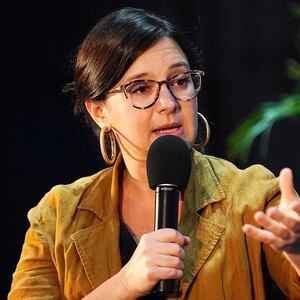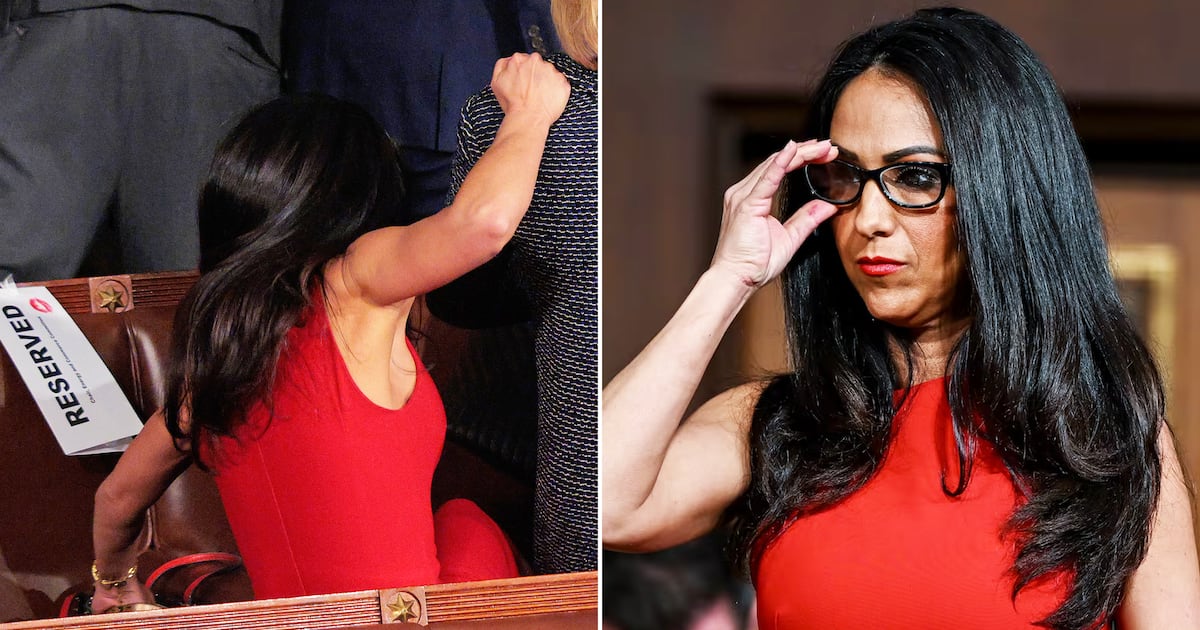The former New York Times opinion columnist Bari Weiss, known for her diatribes against “cancel culture,” announced on Monday that she is helping launch a new “university” that will be “dedicated to the fearless pursuit of truth.”
The somewhat vague mission statement suggests that the institution—called the University of Austin, or UATX—will be a home for those who have been shunned from “illiberal” college campuses.
“Four out of five American PhD students are willing to discriminate against right-leaning scholars,” griped UATX’s inaugural president, Pano Kanelos, in an essay announcing the new venture, which was posted to Weiss’ Substack newsletter.
Buried in the school’s FAQ section: it does not actually offer degrees, nor is it yet accredited.
Also noted in the FAQs: the school is “fiscally sponsored” by a little-known nonprofit called Cicero Research. According to public filings, Cicero is affiliated with Joe Lonsdale, cofounder of the polarizing data-mining company Palantir. As of 2020, however—the most recently available filing—the nonprofit listed no assets.
Lonsdale is also a member of UATX’s board of advisers.
A spokesperson for the school said, “We’re very proud to have Joe Lonsdale both on our board and as one of our financial supporters.”
While less known than another Palantir cofounder, the former Trump-supporting billionaire Peter Thiel, Lonsdale has courted plenty of controversy himself.
Late last month, he assailed secretary of transportation Pete Buttigieg for taking a lengthy paternity leave. (Buttigieg's husband, Chasten, later announced that the baby has been dealing with health issues and spent a week on a ventilator.)
“Any man in an important position who takes 6 months of leave for a newborn is a loser,” Lonsdale tweeted. “In the old days men had babies and worked harder to provide for their future - that’s the correct masculine response.”
The University of Austin says it will launch this summer by offering “forbidden courses” to college students that will stir discussions about “provocative questions that often lead to censorship or self-censorship in many universities.”
The school hopes to launch master’s degree programs in the fall of 2022 and an undergraduate program two years later.
UATX’s unveiling sent social media ablaze.
“Finally, you can get a degree that almost matches University of Phoenix quality, but without the fear of having to encounter a trans person or a Palestinian on campus,” wrote a Twitter account affiliated with District Sentinel, which bills itself as a left-wing news cooperative.
Others assailed UATX’s lack of accreditation.
The tumult follows other high-profile education scandals, most notably the now-defunct Trump University, which paid a $25 million settlement to former students in 2018 over fraud allegations.
UATX, which will operate as a nonprofit, is positioning itself as very real. The school says it has already received seed money and is attempting to land $250 million in additional capital.
Organizers are also securing land in the vicinity of Austin, Texas, a location selected for its concentration of “builders, mavericks and creators.
“If it's good enough for Elon Musk and Joe Rogan, it's good enough for us,” the school wrote.
Last month, Musk announced that he was relocating Tesla to Austin, a controversial decision considering the state’s new abortion restrictions.
UATX's roster of advisers includes some big names, including the evolutionary psychologist Steven Pinker, The Atlantic writer Caitlin Flanigan, and former Harvard president Larry Summers.
Its founding faculty fellows are the philosophers Peter Boghossian and Kathleen Stock, and Ayaan Hirsi Ali, a fellow at the Hoover Institution at Stanford.
Hirsi Ali, who grew up as a devout Muslim in Somalia, has since become an outspoken critic of Islam, generating significant blowback.
In a speech at the National Conservatism Conference this year, Hirsi Ali declared, “The ideology that threatens us today, and has the potential to ruin our societies... goes by many names. But I will call it ‘wokeism.’”
It was a message that could have come from Weiss herself.








